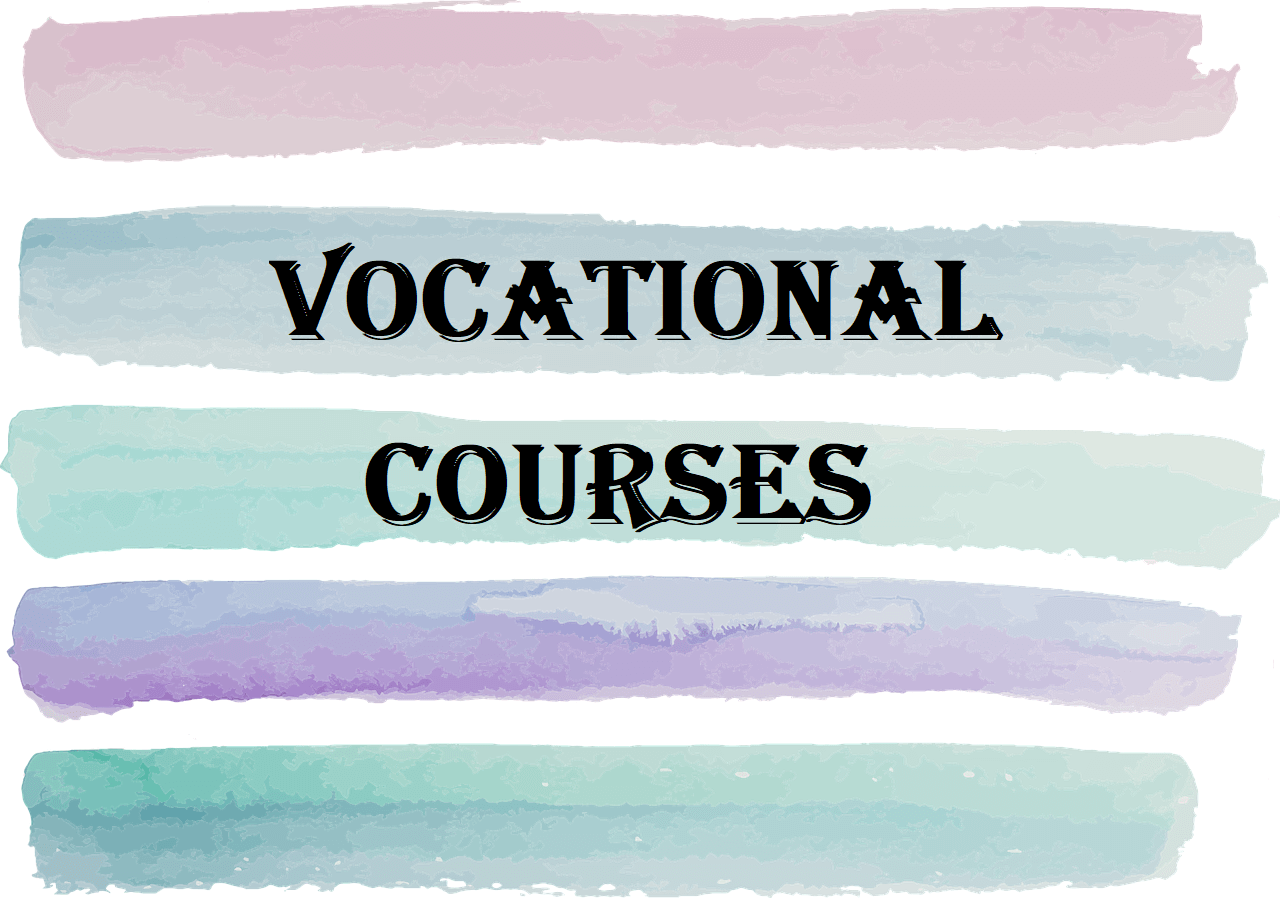“What choices do you have after 12th grade?”
“So, what should I do now?”
“ Should I apply to colleges or enrol in a professional programme?”
If you have completed 12th or high school, you may have a lot of questions.
First and foremost, these are normal and necessary.
The 12th standard marks the end of one's school life. It is a turning point in one's life where everybody thinks what they should do after the 12th.
The 12th grade is the last year of high school and a time where you have to think about your future. It is a transition from the secure, disciplined school days to a time where you have to think about college, careers, and even what you want to do with your llife.
World is not what it used to be.
The job market has changed dramatically in last few years.
Now, a mere college degree is not enough to get a good desired job. The new generation of employers are looking for skillsets that are relevant to the company and the industry.

Some employers look for people who have experience in the industry they are hiring for, while others look for people with skills that are relevant to their company.
The good news is that there are numerous advantages to the new era.
People are adapting to the changes as the world changes. Jobs and industries are shifting as well.
Nowadays, there are a plethora of options available at all times.
It makes no difference whether you have completed your college education or not. Even for those who have completed their 10th or 12th grade, there are numerous possibilities.
Some of the most popular choices are college, a job, or a gap year.
College is a great opportunity to explore your interests and passions in a structured environment. It can also help you find your career path and provide you with the skills needed to succeed in the workforce.
A job is an excellent way to build up experience and make money while still being able to explore other opportunities that may interest you.
A gap year is an excellent way for students who have been accepted into college to take time off before they start school. It's also a great way for those who want to explore their interests before committing to a career path.
What are the advantages of taking up a vocational course after 12th grade?

Some of the advantages of taking up a vocational course after 12th grade are:
- A vocational course will provide you with a more in-depth knowledge on a particular subject.
- You will get an opportunity to explore your interests and passions.
- A vocational course can give you practical experience that can be helpful when looking for jobs.
- You will get an opportunity to develop your skills so that you can be employable for any job.
How is vocational training different from academic training?
Vocational training is a process of preparing people for a specific job. It is usually shorter and more focused on the practical skills and knowledge needed to do the job. On the other hand, academic training is a process of preparing people for a variety of jobs in many different fields.
The main difference between vocational and academic training is that vocational training focuses on teaching skills required to do a particular job whereas academic training focuses on teaching skills required to do any job in any field.
What are the requirements for taking up vocational courses?
The vocational courses are offered by the polytechnics or other institutions.
Aditya Center of Excellence in Borivali, Mumbai, is one such institution. It is managed by Aditya Educational Campus, a well-known name in the field of education.
With Aditya Centre of Excellence, Aditya Educational Campus has joined with NSDC to advance the Skill India objective.
Aditya Centre of Excellence offers a variety of short-term courses and professional certificate programmes to help students jumpstart their careers after finishing 12th.
Here is a complete list of courses you can take after completing high school. You have the option to choose based on your interests.
A) Apparel, Made-Ups & Home Furnishing:
1) Fashion Design Intensive:

Syllabus:
- Fundamentals of Fashion Design.
- Textile Study.
- Surface Ornamentation.
- Pattern Making Garment Construction.
- Fashion Illustration.
- Computer Aided Design.
- Range Development.
Training Outcome:
- Conduct research to create design collection.
- Creation of design for collection.
- Prepare tech pack.
- Create pattern of the garment.
- Construct the prototype garment for the collection.
- Evaluate design development processes.
- Make correction in the garment.
- Maintain the work area, tools, machines and computers.
- Maintain health, safety and security at workplace.
Eligibility: HSC Passed
Duration: 9 Months
2) Apparel Merchandising:

Syllabus:
- Apparel Design.
- Merchandise Know-how.
- Merchandising Management.
- Industry operations.
- Import and Export.
- Computer Application.
- Dissertation.
Training Outcome:
- Assess the market trend.
- Determine key criteria for the design brief.
- Identify the vendors/Suppliers.
- Evaluate and prepare the bill of materials.
- Supervise prototype preparation.
- Confirm the merchandise plan.
- Follow the Time and Action calendar (TNA).
- Prepare pre-production file and address important issues in pre-production meeting.
- Perform coordination and management of shipment.
- Maintain health, safety and security at workplace.
Eligibility: HSC Passed
Duration: 9 Months
3) Embroidery And Fashion Craft:

Syllabus:
- Hand Embroidery Stitches.
- Decorative Layering.
- Fabric Manipulation.
- Indian Traditional Embroidery.
- Portfolio Development.
Training Outcome :
- Carry out different types of embroidery stitches – Flat, loop and knotted stitches.
- Embroider decorative designs using a combination of stitches and work styles.
- Contribute to achieve quality in embroidery work.
- Maintain the work premises and tools.
- Maintain health, safety and security at the workplace.
Eligibility: SSC Passed
Duration: 6 Months
B) Furniture & Fittings:
1) Interior Design Home Space:

Syllabus:
- Arts & Graphics.
- Foundation Studies in Art & Design.
- Fundamentals of Residential Designing.
- Digital Applications.
- Material understanding & Surface Finishes.
- Interior Services.
- Residential Interior Project.
- Project Budgeting & Costing.
- Dissertation.
Training Outcome:
- Gain knowledge about organization structure, responsibilities, and role of an Interior Designer.
- Understand and assess client needs.
- Conduct site survey of the location/site.
- Design the possible drawing alternatives.
- Support in procurement and its management.
- Do onsite installation and execution as per drawings.
- Maintain Health & Safety at client site/ workplace.
- Carry out work effectively.
Eligibility: 10+1 Passed
Duration: 9 Months
C) Management, Entrepreneurship & Professional:
1) HR Recruitment Specialist:

Syllabus:
- Hiring & Recruitment Strategy.
- Rewards Strategy.
- Design Thinking.
- Employee Experience.
- Employer Branding.
- Recruitment Analytics.
- Capstone Project.
Training Outcome:
- Gather job-related information from employer organizations.
- Source candidates for recruitment based on client agreement.
- Coordinate between candidates and employer organizations for the selection process.
- Execute post-selection recruitment processes and reviews.
- Use computers to store, retrieve and communicate information.
- Communicate with clients, visitors, and colleagues effectively.
- Apply health and safety practices at the workplace.
- Apply principles of professional practice at the workplace.
Eligibility: HSC Passed
Duration: 6 Months
2) Training Coordinator:

Syllabus:
- Administrative Management.
- Key Characteristics of an Effective Co-ordinator.
- Communication Skills.
- Organising Programmes/Events - Physical and Virtual.
- Management Information System.
- Venue Administration.
- Documentation and coordination.
- Capstone Project.
Training Outcome:
- Prepare and publish training calendar and participant confirmation list.
- Organize to keep the training venue and facilities ready for training.
- Maintain documentation and share information for all training center activities.
- Prepare report for management information system.
- Apply health and safety practices applicable in a training and assessment environment.
- Apply principles of professional practice at the workplace.
Eligibility: HSC Passed
Duration: 9 Months
D) Banking, Financial Services And Insurance:
1) Mutual Fund Expert:

Syllabus:
- Mutual Fund Concepts.
- Different Types of Funds.
- Constituents of Mutual Fund.
- Legal and Regulatory Framework.
- Net Asset Value.
- Financial Planning.
- Marketing of Units.
- Portfolio Management.
- Measuring Fund Performance.
- Protection of Investors.
- Capstone Project.
Training Outcome:
- Apply proper techniques to conduct market research on mutual funds and sell the products.
- Employ proper procedure to perform after-sales activities.
- Employ suitable practices to maintain data integrity and data privacy.
- Dramatize how to communicate effectively with guests, colleagues, and superiors to achieve a smooth workflow.
- Apply health, hygiene, and safety practices at the workplace.
- Use resources at the workplace optimally.
Eligibility: HSC Passed
Duration: 3 Months
2) Loan Processing Officer:

Syllabus:
- Banking & Lending Products.
- Loan Documentation.
- Credit Analysis and Risk Management.
- Loan Application Process.
- Credit Memorandum.
- Soft Skills.
- Integrity and Ethics.
- Teamwork.
- Loan Products.
- Digital Marketing.
- Capstone Project.
Training Outcome:
- Evaluate, authorize, or recommend processing of loan applications for people and businesses.
- Compile the loan application file, perform preliminary checks, approve loans, and submit recommendations for loans beyond their limits for further processing.
Eligibility: HSC Passed
Duration: 3 Months
E) Media And Entertainment:
1) Motion Graphics And Animation:

Syllabus:
- Design for Web.
- Digital Illustration.
- Basic Compositing and Visual Effects.
- Interaction design.
- Video Editing.
- Showreel.
Training Outcome:
- Interpret graphic visualization brief.
- Manage graphic tools.
- Visualize and generate design.
- Create and edit graphic designs.
- Maintain workplace health and safety.
Eligibility: HSC Passed
Duration: 9 Months
2) Community Journalism:

Syllabus:
- Broadcasting and Community Journalism.
- Community Journalism in Online Age.
- Portfolio Presentation.
- Capstone Project.
Training Outcome:
- Conduct community mapping and recognize the incident.
- Collect news of local importance by investigating background of the incident.
- Follow the applicable Government Laws wherever required.
- Demonstrate the skills to conduct an interview with local authorities, administration, and leaders etc.
- Compile collected field reports and send for publication, broadcast, and telecast purpose.
- Maintain workplace health and safety.
Eligibility: HSC Passed
Duration: 9 Months
We hope that this post answers your questions about "what to do after 12th?" and points you in the right direction.
We hope this article has helped you see all the possibilities out there after 12th grade. Any question? Contact us.
Now is the time to take advantage of all these opportunities and find what's right for you!


